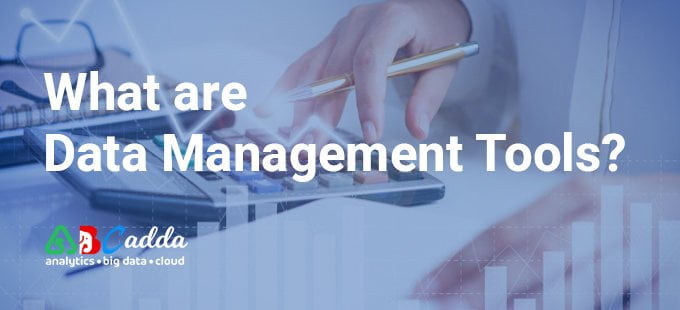Our lives now revolve around the data we produce and live off of. Data drives everything around us now and has become one of the most valuable resources for any organization. Read more about what are data management tools?
The value of data comes from the different insights that could be discovered by manipulating it to gain the potential that is present within.
That is where data management comes into the picture.
What is data management tools?
Data management could be referred to as a collection of the practices, procedures, processes, and concepts of combining with systems that actually allow an organization to gain control of its data resources.
Data management could be implemented with the entire cycle of a data asset right from the point of its creation to the retirement and how it undergoes through changes during its lifetime.
It even aims to influence the optimization of data that is used to influence our decision making process. The same could be influenced by collecting and using the data in a secure and a cost-effective method.
Data Management features
Data Management is one of the most innovative technologies towards proper data retaining and management overall.
The best data management program provide you with gigantic folders to store all your data without any order or organization.
All these management tools will also integrate with the other software programs a company and even includes the features that help you analyze the data, check for bugs and monitor the usage of every file along with updating the associated applications and relevant platforms.
All these efforts that are involved in the digital management of a company’s data mean that these systems are going to be indispensable tools that could help you save time and make the right use of all the resources of your company.
As such, data management can:
- Handle any volume of data.
- Effective data management and debugging.
- Provide a high level of security and privacy.
- Allow data management globally.
- Optimize data access.
Data management tools (and its types)
Putting the power of data management in power is the ultimate test. And for that, you need the right data management tools.
There are a variety of useful data management tools that companies could be interested to use:
Product Information Management (PIM)
This is one of the most ultimate tool that could be used by the manufacturers and retailers that need a centralized control platform for all the content revolving their products.
By automation, a PIM solution is going to take care of the management, correction and delivery of the product information across all the sales channels and agents such as retailers and commercial outlets.
Master Data management (MDM)
MDM involves the tools that manage the central as well as the master data of a company. This involves data management at business, customers and regulation levels.
The MDM programs even include data cleansing, key mapping, centralization, transaction control along with information distribution, and global sync in a variety of locations.
Data Modelling
Data modeling involves the processes that adapt your data to the format which is actually needed for the sake of it to be stored in the database of a company.
All the types of data management tools in such categories even allow you to generate all the conceptual models along with establishing the rules for consistency and quality that your data should meet as well.
Data Warehouse
Data warehouse involves all those programs that could be dedicated to generating the storage locations for your data. Since they are linked to hardware that is already available within your company, they don’t include the management processes that are specialized as per the data types.
These include the tools for storage. However, by themselves, they neither provide a structure, nor a smart analysis of information.
Some of the other common processes could even include their very own tools that involve data quality analysis, metadata, security, and storage.
Data management tools could also organize your data as per very specific criteria like relational modeling, as a network, or even as a hierarchy.
Such protocols are going to influence the type of data management that you are going to need.
